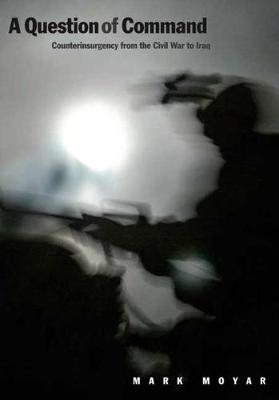Yale Library of Military History
1 total work
An argument for a dramatically different approach to counterinsurgency, based on a reinterpretation of the nature of counterinsurgency warfare.
According to the prevailing view of counterinsurgency, the key to defeating insurgents is selecting methods that will win the people's hearts and minds. The hearts-and-minds theory permeates not only most counterinsurgency books of the twenty-first century but the U.S. Army/Marine Corps Counterinsurgency Field Manual, the U.S. military's foremost text on counterinsurgency. Mark Moyar assails this conventional wisdom, asserting that the key to counterinsurgency is selecting commanders who have superior leadership abilities. Whereas the hearts-and-minds school recommends allocating much labor and treasure to economic, social, and political reforms, Moyar advocates concentrating resources on security, civil administration, and leadership development.
Moyar presents a wide-ranging history of counterinsurgency, from the Civil War and Reconstruction to Afghanistan and Iraq, that draws on the historical record and interviews with hundreds of counterinsurgency veterans, including top leaders in today's armed forces. Through a series of case studies, Moyar identifies the ten critical attributes of counterinsurgency leadership and reveals why these attributes have been much more prevalent in some organizations than others. He explains how the U.S. military and America's allies in Afghanistan and Iraq should revamp their personnel systems in order to elevate more individuals with those attributes.
A Question of Command will reshape the study and practice of counterinsurgency warfare. With counterinsurgency now one of the most pressing issues facing the United States, this book is a must-read for policymakers, military officers, and citizens.
